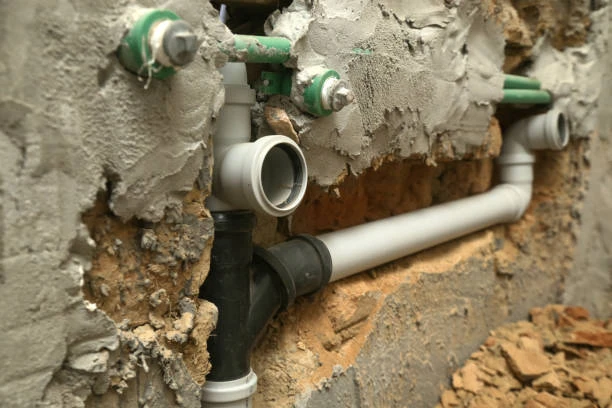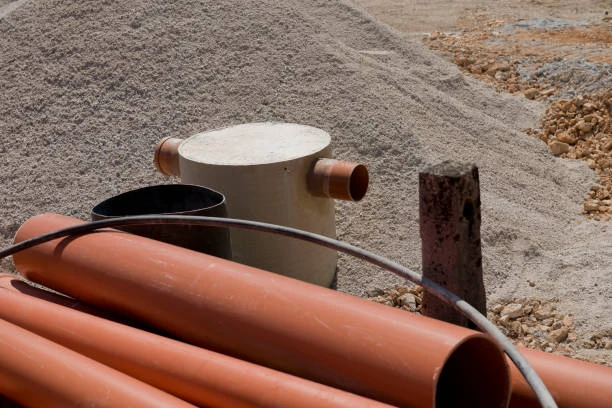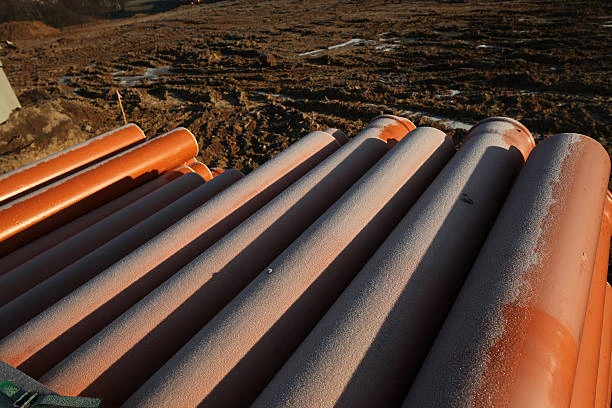PVC pipe fitting are a cornerstone of modern plumbing systems. They ensure smooth connections between pipes and fittings, enabling seamless water flow in residential and industrial settings. However, selecting the best glue for PVC pipe fittings can make or break your plumbing project. Let’s dive into everything you need to know about choosing the perfect adhesive for your PVC system.
Understanding PVC Pipe Fittings
(polyvinyl chloride) PVC pipe fitting are essential components used to connect and redirect the flow of water through pipes. These fittings are widely used in plumbing, irrigation, and construction projects due to their lightweight, durability, and affordability.
Why Do PVC Pipe Fittings Require Glue?
Glue plays a vital role in ensuring that PVC pipe fitting are securely joined. Unlike threaded connections, PVC systems rely on adhesives to create watertight seals. Solvent cement, a common choice, chemically bonds the pipe and fitting for a durable connection.
Characteristics of a Good Glue for PVC Pipe Fitting
When choosing glue for PVC pipe fitting, look for these essential qualities:
- Strong Bonding: Ensures the pipe and fitting stay connected under pressure.
- Waterproof: Prevents leaks in plumbing systems.
- Temperature Resistance: Withstands fluctuations in temperature without weakening.
- PVC Compatibility: Specifically designed for use with PVC materials.
Types of Adhesives for PVC Pipe Fitting
- Solvent Cement:
- The most popular adhesive for PVC pipes.
- Chemically melts the pipe surface to create a fused connection.
- Primer and Cement Combination:
- A two-step process involving a primer to clean the surface followed by cement application.
- All-Purpose Adhesives:
- Can bond PVC and other materials but may not offer the same strength as solvent cement.
How to Choose the Right Glue for PVC Pipe Fitting
When selecting glue:
- Consider Application: For high-pressure systems, opt for a strong solvent cement.
- Review Specifications: Check product labels for compatibility with PVC.
- Seek Recommendations: Rely on trusted brands and user reviews.
Top Recommended Glues for PVC Pipe Fittings
Here are some top-rated adhesives for PVC pipe fittings:
- Oatey PVC Regular Cement
- Ideal for residential applications.
- Provides a quick and strong bond.
- Weld-On PVC Cement
- Trusted for industrial and high-pressure systems.
- Offers excellent durability.
- Gorilla PVC Cement
- Known for its versatility and user-friendly application.
Step-by-Step Guide to Applying Glue on PVC Pipe Fittings
Follow these steps for a secure bond:
- Gather Tools: You’ll need a pipe cutter, primer, cement, and cleaning cloth.
- Prepare Surfaces: Clean the pipe and fitting ends with a PVC primer.
- Apply Glue: Evenly spread the solvent cement on both surfaces.
- Join the Pieces: Push the pipe and fitting together and hold for 30 seconds.
- Allow to Cure: Let the adhesive set according to manufacturer guidelines.
Common Mistakes When Gluing PVC Pipe Fittings
Avoid these pitfalls:
- Skipping the cleaning step can lead to weak bonds.
- Applying too much glue can cause mess and improper bonding.
- Rushing the curing process increases the risk of leaks.
Benefits of Using the Right Glue for PVC Pipe Fittings
Using the proper adhesive ensures:
- Leak Prevention: Keeps your plumbing system watertight.
- Longevity: Reduces the need for frequent repairs.
- Efficiency: Enhances overall system performance.
DIY vs. Professional Installation
You can glue PVC pipe fittings yourself for small-scale projects. However, for complex systems or critical applications, hiring a professional plumber ensures optimal results.
Testing and Ensuring a Secure Bond
After gluing, perform a pressure test to check for leaks. Inspect joints for gaps or weak spots, and address any issues promptly.

Maintenance Tips for PVC Pipe Systems
- Regularly inspect pipes for signs of wear or damage.
- Address leaks or loose fittings immediately to prevent further issues.
- Clean the system periodically to maintain optimal flow.
Environmental Considerations
Some PVC adhesives are more eco-friendly than others. Look for products with low volatile organic compounds (VOCs) and dispose of unused glue responsibly.
Conclusion
Selecting the best glue for PVC pipe fittings is crucial for a successful plumbing system. By understanding your needs, choosing the right adhesive, and following proper application techniques, you can achieve a durable and leak-free connection.
FAQs
- What type of glue works best for PVC pipe fittings?
Solvent cement is the most reliable adhesive for PVC pipe fittings, offering strong bonds and durability. - Do I need to use primer before gluing PVC pipes?
Yes, using a primer ensures a clean surface and enhances the bond between the pipe and fitting. - How long does PVC glue take to cure?
Most PVC glues require 24 hours to fully cure, though initial bonding occurs within minutes. - Can I use all-purpose glue for PVC pipes?
While possible, all-purpose glue may not provide the same strength and reliability as solvent cement. - How do I prevent leaks in PVC pipe fittings?
Ensure proper cleaning, apply the correct amount of glue, and allow sufficient curing time for a secure connection.


















